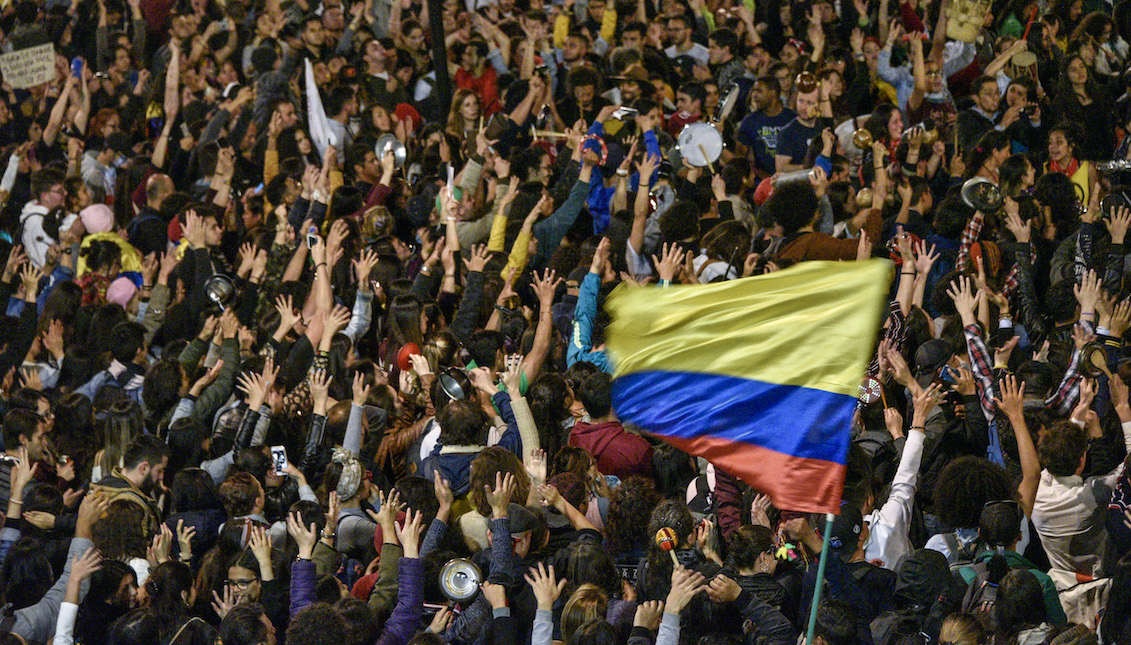
The strike in Colombia won’t stop
"We stop to move on" is one of the harangues heard daily in the largest strike Colombia has seen since 1977.
The national strike, which began on November 21, has now completed 11 days, during which the government of Ivan Duque does not seem to have been efficient or assertive in responding to the demands of civil society.
The list of 18 demands presented by the Strike Committee includes the full and unconditional implementation of the peace agreements signed in 2016, the implementation of anti-corruption measures such as prison sentences of up to 60 years, protection for social leaders, a national policy for the elimination of gender inequality, the development of a multi-level pension system and the protection of Colombia's natural resources.
The government responded by first meeting with the mayors elected in October rather than with the Strike Committee, and in doing so, after six days of mobilizations, presented them with a pre-established agenda, which was interpreted by the committee's representatives as a denial of dialogue.
RELATED CONTENT
In addition, the proposals made by the government during the negotiations are so short in the face of the petitions made that they have been seen more as an offense than anything else. Such is the case, for example, of the proposal to establish three days a year without VAT (Value-Added Tax) for families to purchase clothing, footwear, utensils, and technology.
3 días sin IVA y 365 días sin IVÁN.
— BACTERIA (@eltajalapiz) November 26, 2019
Another aggravating factor is that those institutions that have taken substantially related decisions are not part of the negotiations with the Strike Committee, as in the case of the Attorney General's Office, which requested that the Ministry of Agriculture and Rural Development's rule determining the permitted shark finning quota in Colombia be "modified, suspended or revoked.”
Given how slow and inefficient the government's response has been, as well as the denunciations of police abuses (ranging from vandalism perpetrated by public forces to the murder of Dylan Cruz), the marches continue: the cacerolazos (this is the first time in Colombia's history that they are used), and the concerts.
Despite all the problems in implementing the peace agreement, the fact that Colombians decided to overcome the fear instilled by the State and take to the streets to claim their rights in crowds - including university students, adults, grandparents, and young children - is a reflection of an urban society moving towards post-conflict.











LEAVE A COMMENT:
Join the discussion! Leave a comment.